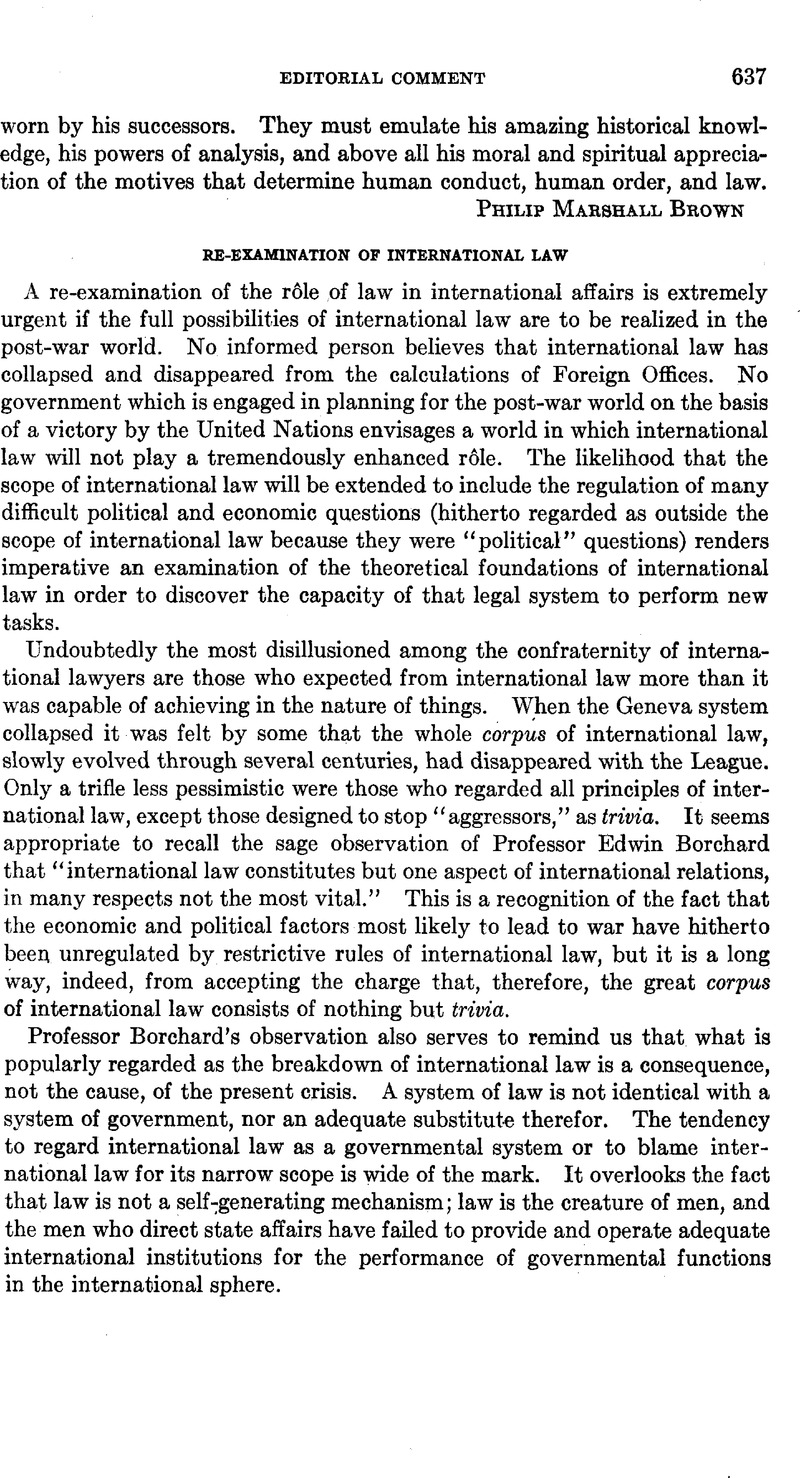No CrossRef data available.
Published online by Cambridge University Press: 12 April 2017

1 Cf. Fundamental Principles of International Policy, U. S. Department of State, Publication No. 1079. Only the Portuguese reply to Secretary of State Cordell Hull’s statement of July 16, 1937, attempted to do more than agree with the lofty sentiments therein expressed. The Portuguese Government, after stating that everyone could agree with those sentiments, added in part: “Difficulties begin only when it is sought to pass from the field of intentions into that of action. . . . International society has endeavored to solve its difficulties . . . by means of abstract formulae, declarations of principles, solemn assertions, many texts and treaties. . . . Although much responsibility seems to lie with the abstract and generalizing tendency of jurists, the causes for the failure must be found . . . (a) in the inexistent or insufficient study of the causes of world unrest; (b) in the excessive ambition to find a sole formula for the solution of grave international problems, applicable urbi et orbi. . . .” Ibid., p. 48.
2 Farrar and Rinehart, 1942, pp. 103–104.
3 “The Prospect for International Law in the Twentieth Century,” 10 Cornell Law Quarterly (1925), pp. 434-435.